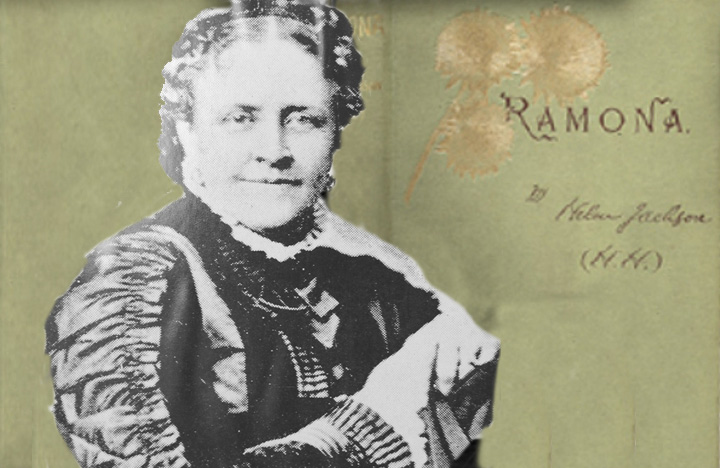Helen Hunt Jackson
Inductee Name
Helen Hunt Jackson
Date of Birth
1830 – 1885
Year Inducted
1985
Category
Arts
Sponsor
Doris Sky
Impact
Nationwide
Helen was born into a pious, scholarly household on October 15, 1831, in Amherst, Massachusetts. She was a high-spirited, strong-willed, fun-loving child in spite of her Calvinist environment. Although opposite in temperament, Jackson and Emily Dickinson formed a friendship in childhood that would last throughout their lives. Her mother died of tuberculosis when Jackson was 12, and her inflexible father, a minister and professor at Amherst College, died three years later. She enrolled at the Abbott School in New York City and earned a reputation as a scholar. When she was 21, she married Captain Edward Hunt, a West Point graduate. Early in their life together a son died in infancy, but another son was born in 1855. During the Civil War Edward was killed in an accident while working on a one-man submarine he had invented. Four years later, Jackson buried her second son, then age 9, a victim of diphtheria. As the young widow re-emerged into the world, she began to write verse for therapy and for self-support. Her writing was an almost immediate success but her health was not robust. Her doctor insisted she seek relief in the “curative air of the Rockies.” In 1875, she married a prominent Colorado Springs citizen, William Jackson.
On one of her trips back east, she attended a reception and met members of the Indian Commission. The Ponca Chief, Standing Bear, told Helen of the tragic plight of his people. His interpreter was Bright Eyes. Helen said she would help raise funds for the Ponca People so they could return to their land. “I have done now, I believe, the last of the things I have said I would never do. I have become what I have said a thousand times was the most odious thing in the world – a woman with a cause,” she wrote a friend. She defended the Ute and in Colorado, it was said she was without a sympathizer in the state. She stood her ground and wrote A Century of Dishonor, which she considered her most important book.
Helen was described as “the most brilliant, impetuous and thoroughly individual woman in her time”. She rose above personal tragedy and became on of the most successful writers of her day. She included as her friends, Emily Dickinson, Ralph Waldo Emerson and Oliver Wendell Holmes. Through her dedication to Indian reform during the last five years of her life, she wrote herself into American history.


